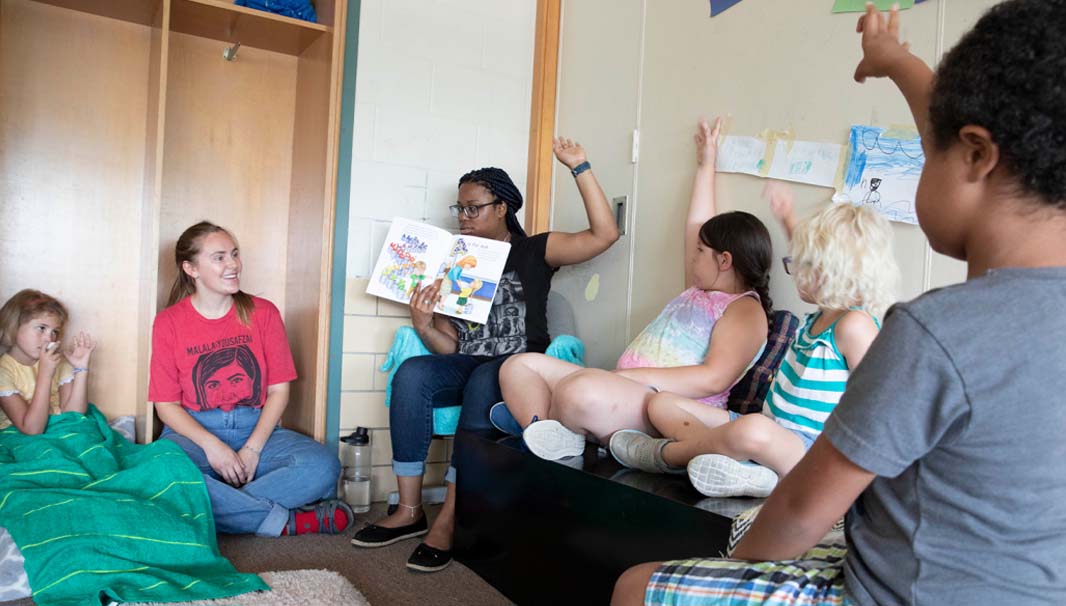Miami awarded ODHE grant to help student teachers master the science of reading
Miami-Lakota school partnership will place student teachers with professional educators trained in the science of reading

Miami awarded ODHE grant to help student teachers master the science of reading
Most people don’t remember when or even how they learned to read. It’s often just one of those things that happened, somehow, at some murky point in the past.
But to succeed in life, every child must acquire this fundamentally important skill, which means we need trained professionals who know exactly how the process unfolds for young learners at every stage of the educational process.
Today, the science of reading is becoming an important issue because more and more students are increasingly falling behind.
According to the National Literacy Institute, approximately 40% of all students across the nation, and almost 70% of low-income fourth grade students, cannot read at a basic level.
And this is not a new trend.
“The decline has been happening for years,” said Heather Grimes, Miami University Learning Lab Coordinator. “It definitely took a dive with COVID, but in the scheme of things COVID was not the biggest factor. It has been taking a dive over the last 20 years, which is a huge problem. And that's why the science of reading is getting so much attention. Because those are eye-opening statistics.”
To help address this issue, Miami University’s Office of Student Teaching has been awarded a $19,000 Science of Reading Student Teacher Placement grant from the Ohio Department of Higher Education (ODHE) to advance the science of reading.
Specifically, the grant will bolster a new partnership with the Lakota Local School district, where Miami student teachers will work alongside professional educators whose teaching strategies already align with the evidence-based practices that support current state reading standards.
“It was the perfect timing,” said Molly Sawyer, Teaching, Curriculum, and Educational Inquiry (TCE) director of clinical and field placement. “We just had recent discussions with Lakota, and I've been so impressed by their desire to come alongside us and mentor future teachers. So, we reached back out and asked if they would be willing to help us place more student teachers in Lakota.”
“The goal is to make sure that our teacher candidates are experiencing at least part of their training in student teaching with teachers who've been trained in the principles of science of reading,” Sawyer continued.
For Lakota, it’s also a chance to get these college students familiar with their school system, and their daily practices and expectations. “So, it's also a win-win for them,” said Kara Conniff, TCE Placement Coordinator. “They can also see if they want to hire these students after they graduate.”
This spring, five Miami Early Childhood Education majors will be placed in Lakota schools. After that, an additional 20 students will be placed during the next two subsequent semesters. “So, at the end of that we know we’ll have 45 new teachers who are trained in the science of reading,” Conniff added.
Back at Miami, this new grant-enabled program with Lakota — which was also secured thanks to the efforts of several additional Miami faculty and staff including Michelle Cosmah, Amie Earls, Leah Wasburn-Moses, and Amy Lambourg — will also be further supported by Miami University’s Learning Lab.
The Learning Lab will provide tutor kits for Miami students to bring into Lakota classrooms. Each kit will include a phonics curriculum manual, a writing tablet, vocabulary cards, books, and more.
“It gives student teachers materials they can immediately implement in the classroom when they're doing their field experiences,” said Michelle Cosmah, Learning Lab director and TCE clinical professor. “Our hope, too, is that it will help the actual Lakota K-12 teachers in the classrooms see more activities, and become even more comfortable teaching the science of reading. So not only are we teaching our students, but we're also supporting the teachers.”
And when it comes to the teaching of reading, this kind of continual learning and re-learning is key. Because not only do the standards change and evolve, teachers also have to understand how to assess the different skills and abilities of every student, which are always different from student to student, and from year to year.
Plus, remember, the ability to teach reading is not typically a skill that comes naturally to most, including those seeking to become professional educators.
“I tell my students that all the time,” Cosmah said. “I say, ‘You're going to learn how to teach kids how to read. But you're going to teach yourself at the same time because you don't remember how you learned.’”
“That's not a memory we usually have,” she said.